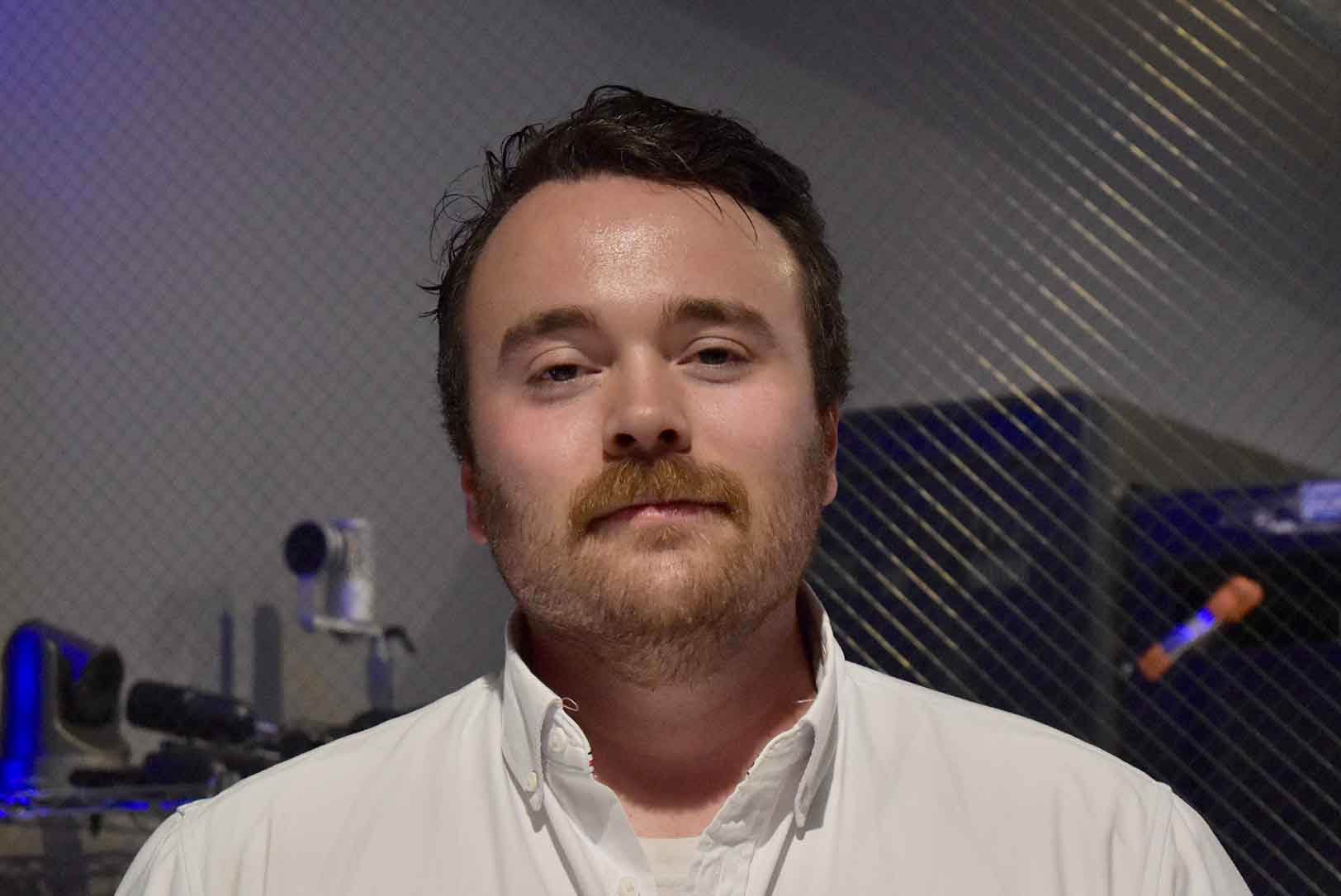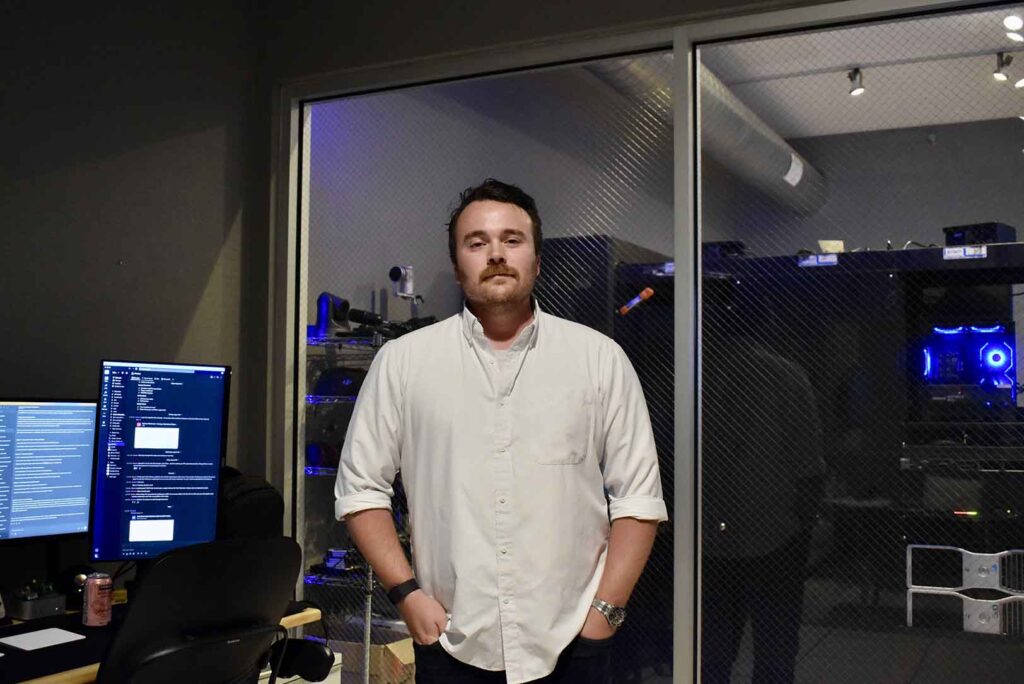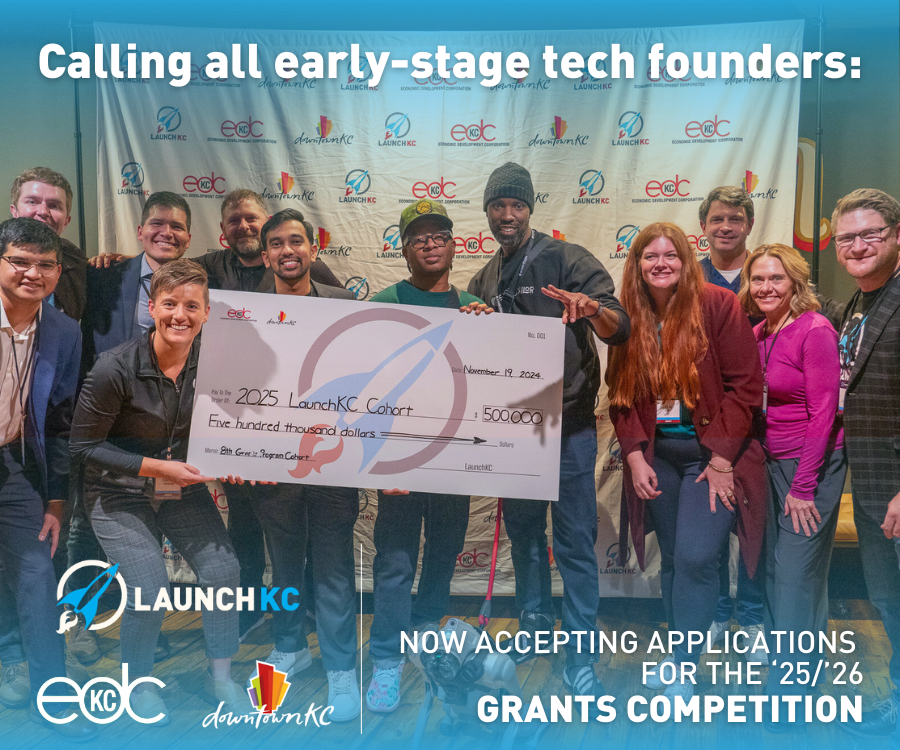First envisioned as an AI-powered agent built to streamline operations at Kansas City-based Plexpod’s coworking spaces, Intuidy has evolved into its own operating system; one that is transforming the way companies operate, co-founder Grayson Smith said.
Vantage — Intuidy’s flagship platform launched in early 2024 with the help of Smith’s brother, Gentry — is a command center for modern organizations, he continued.
“It allows companies and organizations to aggregate all of their infrastructure and data into one system,” Smith explained, “whether that’s through API connections, SQL databases, QuickBooks, Slack, Google, Workforce. You can connect them all into one dashboard, where I can see my data. I can see my AI analytics. I can see all the information that I need, and then I can apply artificial intelligence to it to automate workflows, tasks, and operations.”
Within Vantage is Winston — an AI system designed to detect patterns, predict outcomes, and make proactive recommendations — he noted, allowing organizations to anticipate problems and focus on strategic decision making.
“It’s all about contextual insights and automations,” Smith added.
For example, he said, a trucking company in the Midwest using Vantage will be able to see where all its trucks are located, where they are going, and what they are carrying. With Winston enabled (and connected to current diesel prices and weather forecasts), it can reroute trucks as necessary to save time and money.
“What we’ve built is a system that allows any organization to implement AI into their business without having to reinvent their tech stack,” he explained. “So it’s a very powerful, very cool new category of software.”
Intuidy — which already has five offices across the globe and 13 employees, Smith said — is entering the international business market, and working with governments and regulatory bodies.
“We’re doing some really, really cool stuff,” he continued. “It’s definitely gotten to a point where it’s being deployed and used in ways that we did not initially plan for it to be used because we created it so much like a toolbox — where we won’t solve your problems — but we give you all the tools and resources you need to solve your own problems.”
Space to grow
The roots for Intuidy grew from Smith’s days working for Plexpod coworking, which his father, serial entrepreneur Gerald Smith, opened in 2014, he shared. Working with the space’s wide range of members — from high-growth and enterprise to small business — allowed him to see where technology could take them.
“During that time at Plexpod, because of all the diversity of companies we got to work with, people we got to meet, and events we got to attend, we were always — even though we were not heavily involved in technology — on the bleeding edge of new technology,” Smith explained. “By the nature of the business, we had so many innovators come through our doors.”
Eventually he and brother Gentry were inspired to create a solution for Plexpod team members with limited resources, he noted. They created Hazel, an AI agent that had access to the entire Plexpod ecosystem, allowing it to analyze data, identify recurring issues, and provide intelligent responses.
“When you’re a startup, one of the biggest finite resources that you have is your time,” Smith explained. “So we were trying to build an AI system that allowed our employees and our team members to do more.”
They had such success with the program, Smith said, that other companies started expressing interest. So in 2017, they spun out and launched Intuidy.
“It was originally supposed to just be simple IT, building customer support agents and managing computers, infrastructure, things like that,” he recalled. “Every single iteration or deployment we did of our agent, we said, ‘OK, how can we take it a step farther?’ And eventually looked at what we created and we said, ‘Wow, we have developed a very integrated, powerful, context-aware system that’s really ahead of its time.’”
“There were about one or two companies at the time — now there’s four or five — trying to do something similar,” he added.
A new infrastructure
Vantage is a fraction of the cost of its competitors, Smith said, emphasizing it doesn’t require a reinvention of the company’s tech stack.
“If a business was to go with one of our competitors, it has to make sure it fits within their box, within their boundaries,” he explained. “Do things this way, say things like this, make sure it speaks this language. Whereas Vantage, we create such a robust translation layer that a company of two or a company of 10,000 can pick it up and be using it within weeks or months.”
Within a decade or even just five years, Smith believes running a business without a system like Vantage will be like trying to run a business now without the internet or a website, he said.
“You can do it, but it’s like lopping your leg off,” the founder continued. “We want to be so integrated with the operations and so industry agnostic — spread across multiple different industries — that we want to be a base resource that is needed by every business. Because artificial intelligence clearly isn’t going anywhere and the system that we’ve created gives employees and business owners and operators absolute superpowers.”
Although only a handful of the 2,000 companies that are using Vantage are based in Kansas City, the region will always be home, Smith said.
“What I’m so excited about is the investment that we want to bring back to Kansas City,” he explained. “This will always be our headquarters. And as we grow, as we expand, and frankly, create offices around the globe, this will always be our base of operations.”
“We want to invest in the infrastructure of the city, its talent, its people,” Smith continued. “That’s something that I’m obviously very passionate about, something I’m very excited about.”












































